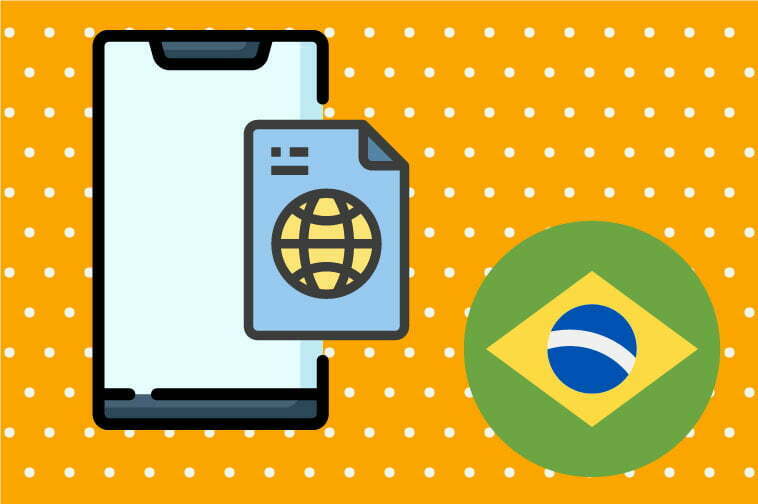Brazilian Portuguese Software Translation
Brazilian Portuguese Software Translation
 Brazilian Portuguese software translation is the process of adapting components of a software, such as user interfaces, documentation, and instructions, from other languages into Brazilian Portuguese.
Brazilian Portuguese software translation is the process of adapting components of a software, such as user interfaces, documentation, and instructions, from other languages into Brazilian Portuguese.
Software translation goes beyond basic translations and localization services. It involves adaptations of cultural contexts while meeting user expectations within a region.
You can learn more about our Brazilian Portuguese localization services and best practices here.
Translating software is an essential service that enables Brazilian users to access digital products.
This type of localization allows programs to operate without complications in the Brazilian market. It does this while upholding both language precision and ease of use.
Also, businesses that leverage Brazilian Portuguese translation software optimize their workflow and boost operational effectiveness in the process.
Software Translation and Globalization
To ensure your software localization is accurate and fully adapted for Brazilian consumers, you must ensure your software is “globalized.”
The term “globalization” in the translation industry refers to the basic process of creating software that functions in any market…
Due to software translation complexities, many translation companies cannot perform Brazilian Portuguese software translation.
So, when searching for a company to translate your software into Brazilian Portuguese, ensure they are ISO certified. GPI’s quick facts on Brazilian Portuguese translation can get you started on what to look out for when translating your document for the Brazilian market.
Brazilian Portuguese Software Translators
Brazilian Portuguese software translation projects should be executed by professionals and native-speaking software translators.
It should be executed by those who specialize in the specific professional and technical areas of your company.
The software translators should have experience with issues related to software translation.
They should know the proper translation of dialog boxes, error messages, and standard user interface terminology, and software localization workflows.
Brazilian Portuguese Software Terminology Management
Brazilian Portuguese software translators should utilize translation memory tools such as Trados.
Trados can be used to translate the text strings that have been externalized from the various file formats, which resulted in client-specific glossaries and terminology databases.
The valuable data contained in the translation memories becomes the proprietary property of the client, ensuring consistent translations throughout the components.
Trados also creates an authentic user experience.
Brazilian Portuguese Software Component Translation
Often, a localization project for Brazil also includes the translation of related components such as online help and printed documentation.
Your software translation company should have the capability to translate text from such source files as Java, VB, and ASP; XML and ASP; C/C++; Visual Basic; Oracle; Microsoft SQL Server; and others.
Common documentation file types include FrameMaker, InDesign, QuarkXPress, Illustrator, and Word.
Professional Brazilian Portuguese Translation Services
Organizations frequently seek Brazilian Portuguese translation services to ensure Brazilian consumers access accurate information online or offline and get the best user experience from localized software.
Businesses utilize the services of expert linguists, software localization service providers such as GPI, and advanced translation to deliver top-quality results.
Translations are done by collaborating with Native Brazilian Portuguese experts working as specialist linguists to maintain both linguistic precision and cultural accuracy.
Why is Brazilian Portuguese Software Translation Important?
Brazil represents a major economy within Latin America, where digital technology continues to grow because millions of users need software solutions for business purposes as well as education, entertainment, and everyday tasks.
Quality Portuguese localization helps businesses achieve the following objectives:
- User experience improves when a software interface receives well-translated Portuguese language adaptations, which make products more user-friendly.
- Localization enables businesses to access the Portuguese-speaking population of over 215 million users.
- Some businesses, especially those working in healthcare and finance, must implement localized software for regulatory compliance purposes.
- A culturally tailored translation software helps users trust the brand more while building better opportunities for credibility.
Industries that require Brazilian Portuguese Software Translation
Various industries use software localization to establish successful connections with Brazilian market consumers.
These include:
- The Information, Communication and Technology Industry: The ICT sector requires Brazilian Portuguese software translation to enable effective operation of SaaS platforms and mobile applications, and enterprise software.
- Healthcare & Pharmaceuticals: Patient portals, medical devices, and regulatory documentation need document translation for compliance.
- E-commerce: Brazilian Portuguese software translation services are needed for e-commerce systems and their customer support chatbots.
- The Financial Industry: This sector requires mobile banking applications and financial management software, together with transaction platforms to receive translation services.
Conclusion
Businesses looking to localize their software for Brazil’s rapidly growing market can reach out to GPI.
We are an ISO-certified translation and localization company providing the highest-quality professional translation and localization support to enable businesses to achieve linguistic accuracy together with culturally appropriate content and software operability.
© Copyright 2026 Globalization Partners International.
® All Trademarks are the property of their respective owners.
All graphics used in this report were provided by Flikr, Google Images and other free internet resources for pictures.